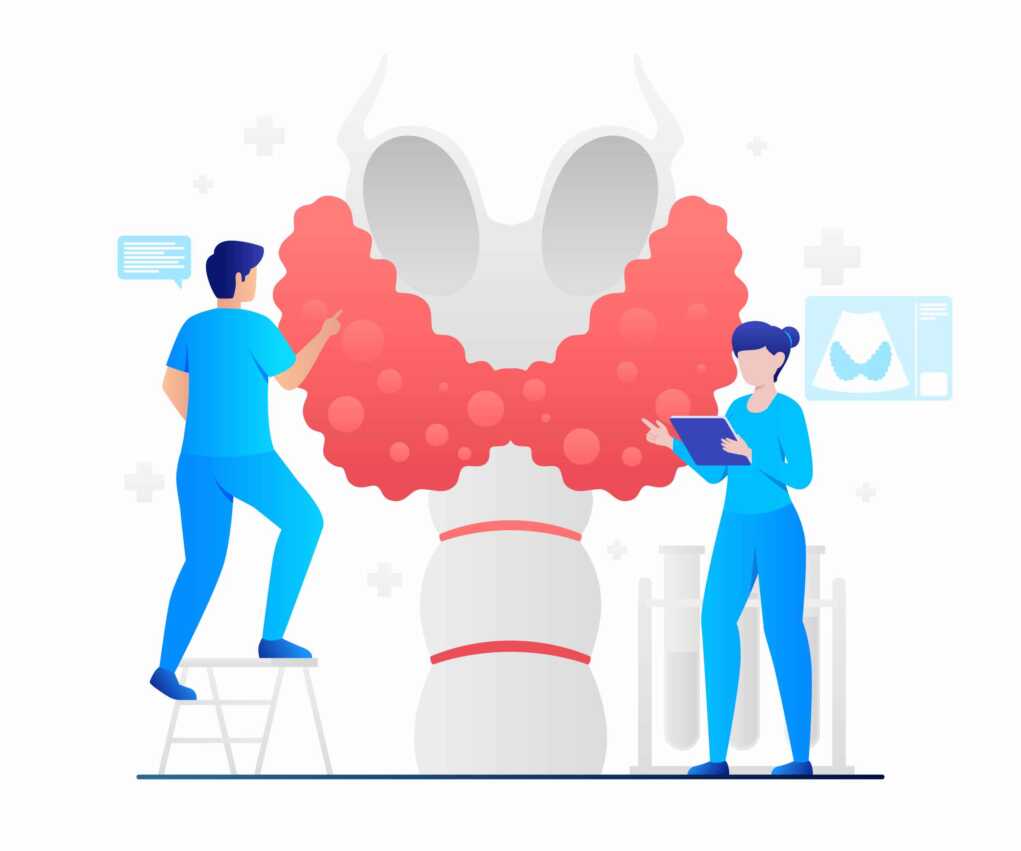
Although they’re separate diseases, depression is sometimes a symptom of hypothyroidism. That’s when your thyroid gland doesn’t make enough thyroid hormone. Medication can boost those levels, and that can improve or get rid of your symptoms, including depression.
The two conditions share so many signs that doctors sometimes overlook the possibility that someone who is depressed may also have low thyroid levels.
If you have hypothyroidism, you may have fatigue, sluggishness, and trouble concentrating. You may sleep too much, too. All of that may cause you to feel depressed.
At the same time, you could also have:
- Slower heart rate
- Sensitivity to cold
- Joint or muscle pain or cramps
- Tingling in your hands and fingers
- Vague aches and pains
- Modest weight gain
- Constipation
- Dryness or yellowing of your skin
- Brittle or thick nails
- Hoarse voice
- Swelling in front of your neck
- Hair thinning or loss
- Menstrual period changes
Linking Hypothyroidism With Depression
To help your doctor figure out if your depression is because of hypothyroidism, they should test you for thyroid disorders. Blood tests can confirm them if they show low levels of a thyroid hormone called thyroxine and a high level of one called thyroid-stimulating hormone (TSH).
Getting Help
If you’re feeling depressed, see your doctor. Both hypothyroidism and depression are treatable. A proper diagnosis is a major first step toward feeling more like yourself.
Sources:
- Fountoulakis, K. BMC Psychiatry, March 15, 2004.
- Garber, J. Journal of Family Practice, June 2006.
- Thyroid Foundation of America: “Depression and Thyroid Illness.”
- National Institutes of Health: “Medical Encyclopedia: Hypothyroidism.”
- Demet, M. West Indian Medical Journal, September 2003.
- Altshuler, L. American Journal of Psychiatry, October 2001.
Important Notice: This article was originally published at www.webmd.com by Beth Roybal where all credits are due. Medically reviewed by Minesh Khatri, MD
Disclaimer
The watching, interacting, and participation of any kind with anything on this page does not constitute or initiate a doctor-patient relationship with Dr. Farrah™. None of the statements here have been evaluated by the Food and Drug Administration (FDA). The products of Dr. Farrah™ are not intended to diagnose, treat, cure, or prevent any disease. The information being provided should only be considered for education and entertainment purposes only. If you feel that anything you see or hear may be of value to you on this page or on any other medium of any kind associated with, showing, or quoting anything relating to Dr. Farrah™ in any way at any time, you are encouraged to and agree to consult with a licensed healthcare professional in your area to discuss it. If you feel that you’re having a healthcare emergency, seek medical attention immediately. The views expressed here are simply either the views and opinions of Dr. Farrah™ or others appearing and are protected under the first amendment.
Dr. Farrah™ is a highly experienced Licensed Medical Doctor certified in evidence-based clinical nutrition, not some enthusiast, formulator, or medium promoting the wild and unrestrained use of nutrition products for health issues without clinical experience and scientific evidence of therapeutic benefit. Dr. Farrah™ has personally and keenly studied everything she recommends, and more importantly, she’s closely observed the reactions and results in a clinical setting countless times over the course of her career involving the treatment of over 150,000 patients.
Dr. Farrah™ promotes evidence-based natural approaches to health, which means integrating her individual scientific and clinical expertise with the best available external clinical evidence from systematic research. By individual clinical expertise, I refer to the proficiency and judgment that individual clinicians acquire through clinical experience and clinical practice.
Dr. Farrah™ does not make any representation or warranties with respect to the accuracy, applicability, fitness, or completeness of any multimedia content provided. Dr. Farrah™ does not warrant the performance, effectiveness, or applicability of any sites listed, linked, or referenced to, in, or by any multimedia content.
To be clear, the multimedia content is not intended to be a substitute for professional medical advice, diagnosis, or treatment. Always seek the advice of your physician or other qualified health providers with any questions you may have regarding a medical condition. Never disregard professional medical advice or delay in seeking it because of something you have read or seen in any website, video, image, or media of any kind. Dr. Farrah™ hereby disclaims any and all liability to any party for any direct, indirect, implied, punitive, special, incidental, or other consequential damages arising directly or indirectly from any use of the content, which is provided as is, and without warranties.








